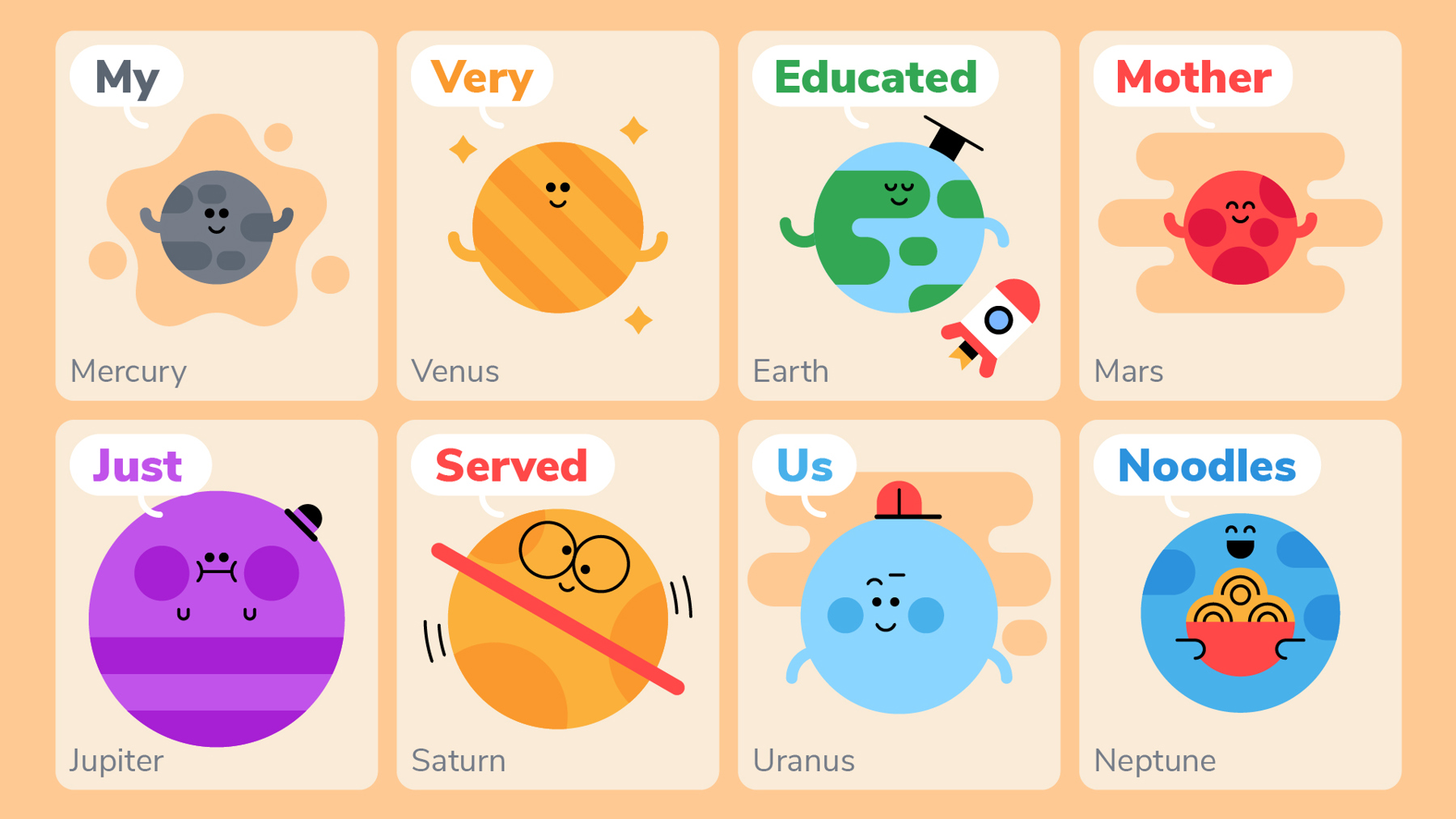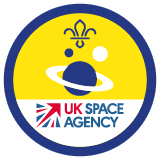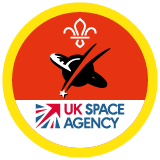Solar sorting
You’ll need
- Air-drying clay
- Paint
- Paint brushes
- Sticky labels
- String
- Coat hanger

Before you begin
- Write the name of one of the eight planets in our solar system (Mercury, Venus, Earth, Mars, Jupiter, Saturn, Uranus, and Neptune) on each of the labels. You need to make enough labels for everyone to have one.
- This activity will probably take two sessions – you’ll need to let the clay models dry before you can paint them.
- If the number of people in your group doesn’t divide by eight, it’s OK. Some solar system groups could have pairs representing planet(s), or you could add in the Sun.
Solar sorting
- Everyone should take it in turns to share any planets they know the names of. If anyone knows anything about the order they orbit (travel around) the Sun, they could share that too.
- The person leading the activity should explain that the centre of our solar system is the Sun, a star that lights the whole solar system. They should explain that from closest to the Sun, the planets are: Mercury, Venus, Earth, Mars, Jupiter, Saturn, Uranus, and Neptune.
- The person leading the activity should explain that a mnemonic is a way to help remember thing by taking the first letter of each work and making a sentence with words that start with those letters. People have all sorts of ways to remember the planets, such as ‘my very easy methods just sends us names’, ‘my very educated mother just served us noodles’, or ‘my very easy method, just SUN’. People could use one of these, or make up their own.
- The person leading the game should give everyone a sticky label with the name of a planet on it.
- The person leading the game should count down from three to one. When they reach zero, they should say ‘Blast off!’, and everyone should find the other seven planets they need to complete a solar system.
- The eight planets in each solar system group should line up in the right order.
Make a planet
- Each solar system group should stick their labels on to a piece of paper in the right order. They should also write at least some people’s names on the paper, so each group can tell which piece of paper is theirs.
- The person leading the game should give everyone some air drying clay.
- Everyone should make a model of their planet. They should work with everyone else in their solar system group to get the models roughly to scale – Jupiter is the biggest planet, and Mercury is the smallest.
- Everyone should place their models on their group’s piece of paper. They should put each planet by its label.
- Everyone should leave their models to dry.
Make a solar system
- Everyone should paint their models so they look like the planet they’re representing. They should look at pictures of the real planets to see what they look like.
- Once the paint is dry, everyone should thread their planet onto some string and tie it on a coat hanger to make a solar system mobile. Each solar system group should make one mobile between them, not forgetting to make sure the planets are in the right order.
Reflection
This activity helped everyone to develop skills. What did people know before this activity? Some people may have known the name of one or two planets, and others may have known lots. Did people find it easier to remember the names (and order) of the planets with a mnemonic (the sentences with words starting with the same letters as the planets)? Being able to learn and memorise things is a skill. What other ways do people know to remember things? What other sorts of things do people have to remember?
This activity also needed everyone to work in a team. People needed to work together and communicate to form a solar system group, then everyone in each solar system group needed to work together. How did each group decide what order to start with? Did anyone take the lead? What made your team work well together in different tasks? What makes a good team player – does anyone have any examples of people being a great team player? People may think about things including listening to everyone, thinking about other people’s feelings, and being helpful. You needed all the members of your team to create a solar system. It wouldn’t be the same with just a few of the planets.
Safety
All activities must be safely managed. You must complete a thorough risk assessment and take appropriate steps to reduce risk. Use the safety checklist to help you plan and risk assess your activity. Always get approval for the activity, and have suitable supervision and an InTouch process.
- Sharp objects
Teach young people how to use sharp objects safely. Supervise them appropriately throughout. Store all sharp objects securely, out of the reach of young people.
- Add an extra challenge when people get into their solar system groups to test their problem-solving and teamwork. Can they do it in silence, or with some people blindfolded?
- You could find out more about each planet, especially how they got their names.
- You could ask an expert to come and help deliver this session. You could look for a local astronomy club or student, or you could ask if any parents or carers are astronomers in their spare time.
Make it accessible
All Scout activities should be inclusive and accessible.
Some people may know more than others – they can share their interest and knowledge with everyone else.


